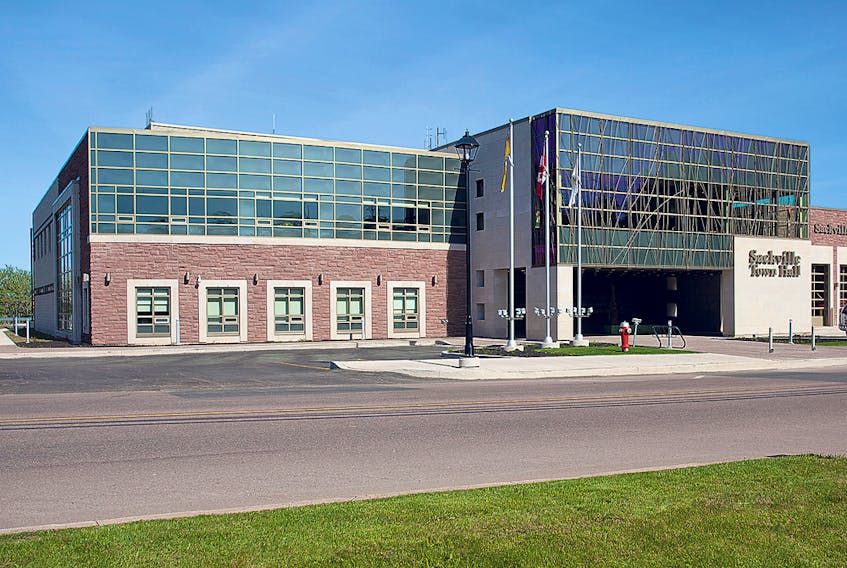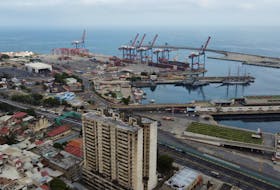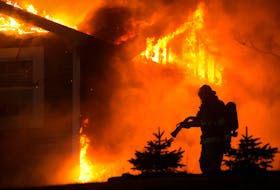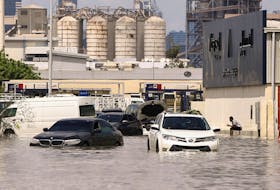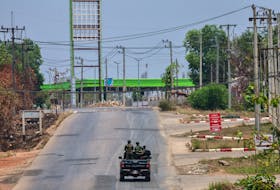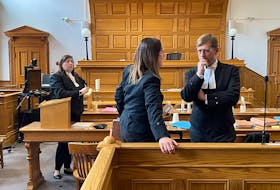SACKVILLE, N.B. – Town council decided this week to defer approval of the 2018 operating budget until January after a hefty and unanticipated drop in property values in the community has forced them to rethink their financial plan for the coming year.
Although council was expected to bring forward the budget Monday night for approval, along with a tax hike to make up for the lost revenue, Sackville Mayor John said they instead will postpone the decision until the new year while the town awaits word back from the provincial government to a request for more financial assistance to help get them through the unexpected $9.2 million cut to their property tax base.
“We will defer the budget for a bit longer as we wait for them to respond to that,” said Higham. “That’s the reason we won’t be finalizing the budget tonight.
The town only received word last month, during its final budget deliberations, that Service New Brunswick, through its review of property assessments in the community, had not only determined that it had made a mistake on this year’s assessments to the tune of about $5.6 million (as a result of appeals) but also felt it had been perhaps overassessing properties for several years and so did a more indepth review.
“They basically acknowledged they were overaggressive in their assessment numbers in the past couple of years . . . so because they had recognized they had been overaggressive in their assessment levels, they did a correction across the board and that resulted in a further $7 million reduction for Sackville,” said Phil Handrahan, Sackville’s chief administrative officer, during the most recent public session on Nov. 29.
Handrahan explained that those two figures brought the total to about a $12.6 million reduction to Sackville’s overall property tax rate this year; but with some new construction and renovation in 2017 estimated at about $3.4 million, that number was brought to about $9.2 million.
“That’s certainly not where we were anticipating to be,” he said, noting that the town is taking a double hit with these assessment changes.
Mayor Higham agreed, saying “we certainly didn’t expect to have a reassessment of the assessed value.”
Because the town was hit doubly hard this year, Higham has written a letter to the Minister of Local Government, not only expressing its concern over the significant reduction to its property tax rate but to request an additional financial assistance of $60,000 beyond the initial allocation of $51,854, which was provided to help communities make up for the property tax freeze put in place by the provincial government this year.
“We only got assistance for the tax freeze only and not for the other adjustments made,” he said.
Higham said this situation was created by Service New Brunswick’s errors and the Sackville taxpayers are the ones having to pay for their incompetency.
The additional $60,000 could help council forego its decision to raise the municipal tax rate, a move they were expected to make after their budget discussions two weeks ago. During those discussions, all seven councillors present felt the best decision to make was a one-cent tax hike, rather than cutting services.
Councillor Bill Evans said although he certainly didn’t want to consider a tax hike for the coming year, he also didn’t expect a $9-million cut in the tax base.
“This is a problem brought about by the provincial government taking away $7 million of our tax base; whether that’s fair or not, that’s the reality,” said Evans.
Only one other community took a cut higher than Sackville, and that was Moncton, he said, a much larger community.
“Sackville really got shafted here,” he said. “This seems to have targeted us and it’s having a huge effect on us.”
The reduction to the overall tax base results in about $180,000 in lost revenue for the town, said treasurer Michael Beal. In its most recent draft, which was presented to council on Nov. 29, staff made some more revisions and was able to cut about $120,000 from the first draft.
“We looked at where we could take funds from, where we could adjust budgets that did not substantially impact services,” said Beal.
But that still left about a $60,000 shortfall, one that could be paid for through a one-cent tax increase. There were other options presented to council on how to make up that shortfall but councillors said they didn’t want to cut services, or borrow money from reserves when those funds could be needed elsewhere.
“I hear people telling us we’re spending way too much money . . . but if we turned around and cut services, they’d be at us a lot harder,” said councillor Joyce O’Neil.
Councillor Megan Mitton agreed that a tax hike would be the strongest option as it would spread the costs out so it wouldn’t have as large as an impact.
If council does decide to go ahead with a tax hike, if the provincial government doesn’t come through with further assistance, the municipal tax rate would rise one cent to $1.56 per $100 of assessment. This means a property owner with a home assessed at $100,000 would pay $10 more per year.
Councillor Allison Butcher said she realizes raising taxes is “not pleasant . . . but we’ve been handed this. And I don’t think it’s a crazy amount to request of homeowners.”
Beal said this is the first time in the 24 years he’s worked for the town that he’s seen Sackville’s tax base go down. In fact, since 2010, the tax base increase has gone up each year by an average of about 3 to 4 per cent.

